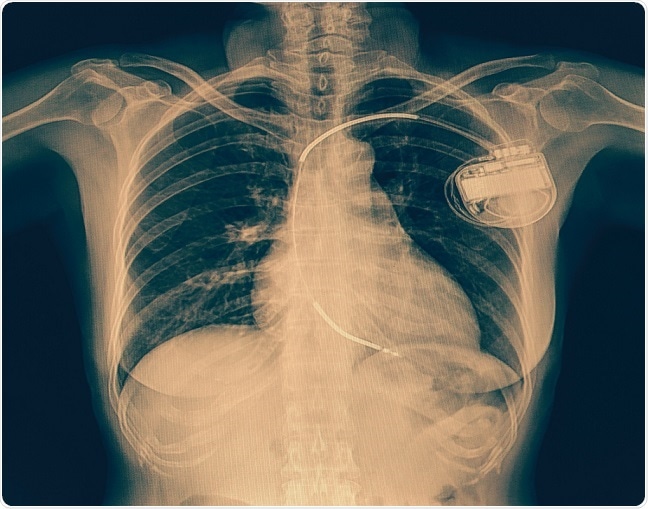Wearable defibrillators may be a safe and effective alternative to surgically implanted devices among children with ventricular arrythmias that increase the risk of sudden cardiac death, according to a new study published in the American Heart Association journal Circulation: Arrhythmia and Electrophysiology.
Principal investigator David Spar (University of Cincinnati) says:
Our results, which stem from the largest study to date among children in the United States using wearable cardioverter defibrillators, suggest that these external devices can help save the lives of children who are at the time, not good candidates for surgically implanted defibrillators because of their medical condition.”
Sudden cardiac arrest in children is usually caused by congenital heart abnormalities that trigger electrical malfunction and cause dangerous arrythmias that affect the heart’s ability to pump blood to the brain, lungs and other organs properly.
Currently, the main therapy for children at risk of sudden cardiac death is the surgical implantation of a cardioverter defibrillator. However, this involves invasive surgery and prolonged hospitalization, when in many cases, young patients only need a temporary “bridge” to help their heart. They may be waiting for a heart transplant, for example, or be recovering cardiac function after having been newly diagnosed with heart failure. In instances such as these, patients would not be good candidates for surgically implanted devices, explains Spar.

© Kasa1982/Shutterstock.com
In 2015, wearable cardioverter defibrillators were approved by the by the U.S. Food and Drug Administration for use in pediatric patients. However, there has been limited information about their safety and efficacy in children. If effective, the devices could prevent the need for prolonged hospitalizations, while still protecting against dangerous arrhythmias.
The current study, which is based on a review of all U.S pediatric patients (aged an average of 15 years) who wore the devices between 2009 and 2016, is the first to describe appropriate therapy with a wearable cardioverter defibrillator in a pediatric population.
Of 455 patients assessed, eight received at least one shock treatment to stop a dangerous heart rhythm. Six of those patients received appropriate therapy for the type of arrythmia the defibrillator is designed to detect and stop.
In the other two cases, where inappropriate therapy was received, the device misread a heart signal and misfired. Among all eight children, dangerous arrythmias were successfully interrupted and a healthy rhythm restored, with all patients surviving.
Source